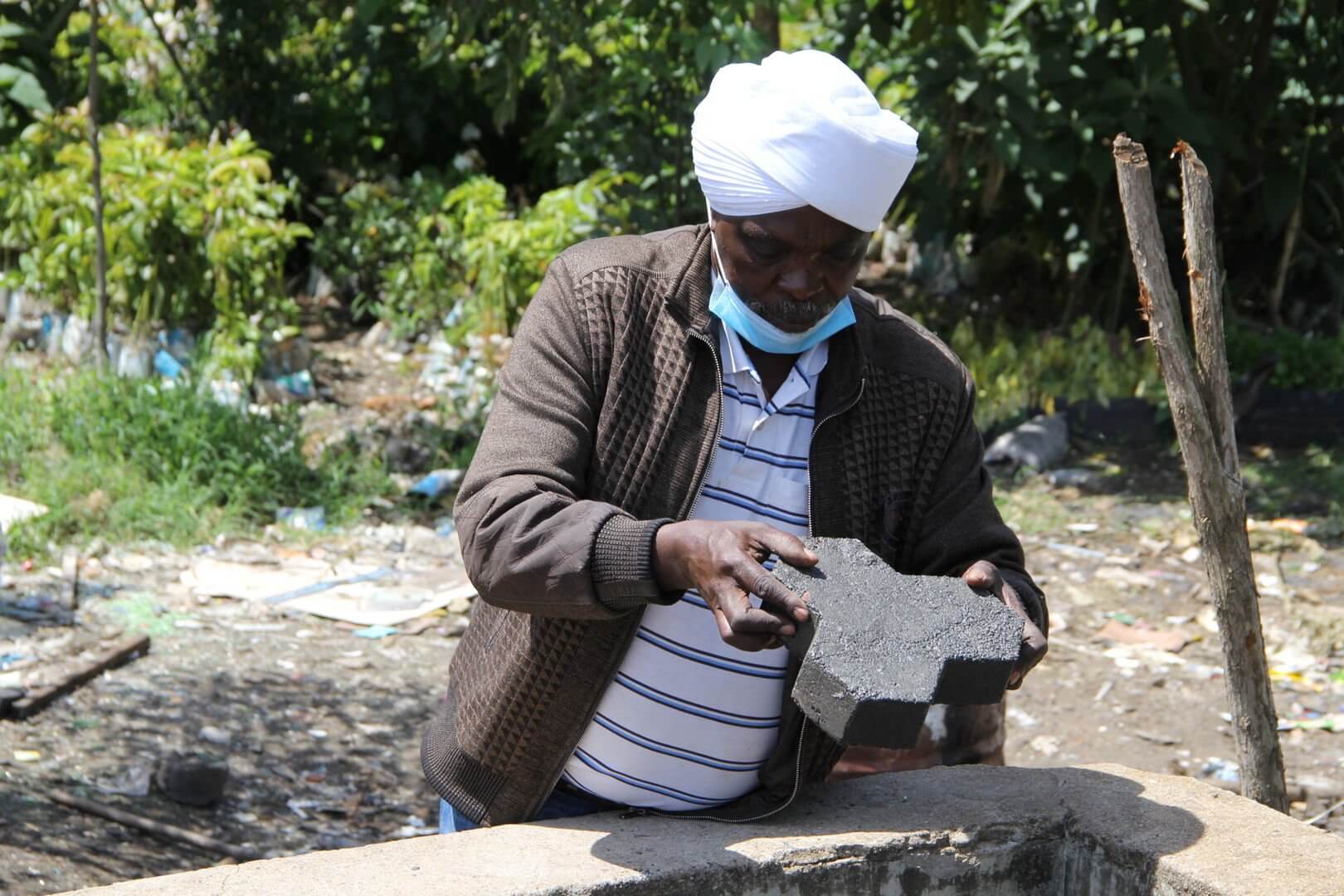
Meet Francis Thuti, an Environmentalist Who Turns Used Face Masks, Plastics into Building Blocks
Since the onset of the Covid-19 pandemic last year, the World Health Organization (WHO) recommended wearing face masks in public as one of the measures of curbing the spread of the disease globally.
The face masks have, however, become a nuisance since most are discarded recklessly in towns and rivers.
But for Francis Thuti, an environmentalist, the dumped protective masks have turned out to be one of the key components in his project of manufacturing interlocking road cabros and building blocks.
Despite the stench emanating from the main Nanyuki dumpsite, Mr Thuti has established a workshop there where he has for the last 10 years conducted groundbreaking research on how to conduct a zero-waste project.
Mr Thuti is the chairman of Storm Water and Environmental Management Forum.
On weekdays, you will find Mr Thuti busy sorting out heaps of stinking garbage at his workshop and extracting used face masks, plastic bottles, glass bottles, polythene papers and woven carrier bags.
The government banned plastic carrier bags because they polluted the environment and clogged up drainage systems, hence, contributing to floods during rainy seasons.
Mr Thuti crushes glass bottles into sand form using an improvised crushing machine and pieces up together all sorts of plastic products including the non-recyclable heavy-duty ones that take a lot of years to biodegrade.
He combines the waste items and heats them at a high temperature of between 360 to 420 degrees Celsius.
A catalyst and the glass sand are added to precipitate the merging of the components.
The product is then condensed to produce heavy-duty blocks, which can be used as either cabro or building blocks.
“During this Covid-19 pandemic, there are lots of face masks lying around and I heard people say that they cannot be recycled. I have changed that perception,” Mr Thuti says.
“A piece of square meter cabro weighs 2.5 kilogrammes. I have used the cabro blocks to cover a walkway of 50 meters at Nanyuki Water and Sewerage Company (Nawasco) offices. This is just a starter of my innovation and they look magnificent and durable,” he adds.
Exact weight
Using the same ingredients, the environmentalist produces interlocking building blocks, which are currently in the prototype stage before venturing into their mass production.

